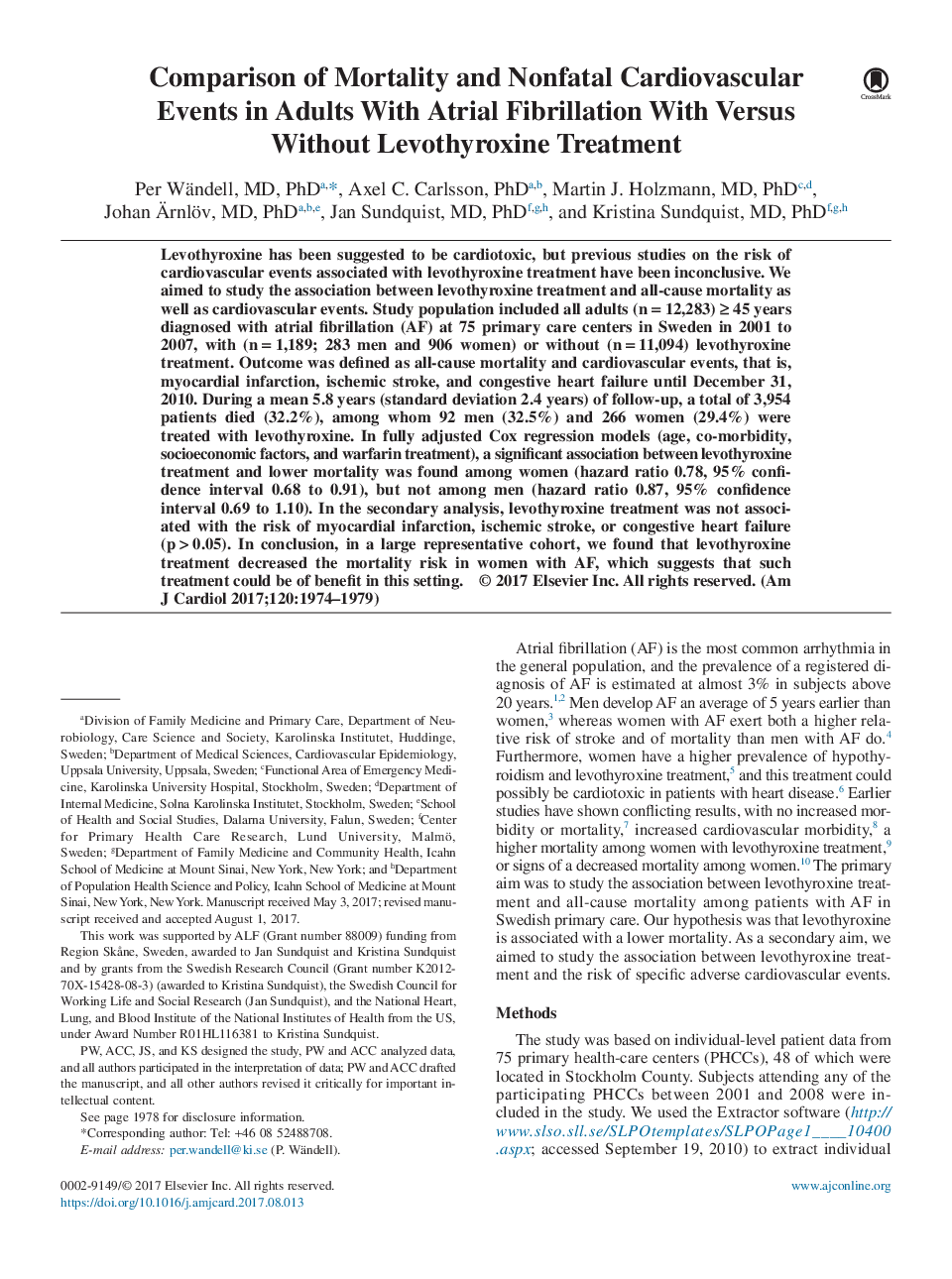Levothyroxine has been suggested to be cardiotoxic, but previous studies on the risk of cardiovascular events associated with levothyroxine treatment have been inconclusive. We aimed to study the association between levothyroxine treatment and all-cause mortality as well as cardiovascular events. Study population included all adults (nâ=â12,283)ââ¥â45 years diagnosed with atrial fibrillation (AF) at 75 primary care centers in Sweden in 2001 to 2007, with (nâ=â1,189; 283 men and 906 women) or without (nâ=â11,094) levothyroxine treatment. Outcome was defined as all-cause mortality and cardiovascular events, that is, myocardial infarction, ischemic stroke, and congestive heart failure until December 31, 2010. During a mean 5.8 years (standard deviation 2.4 years) of follow-up, a total of 3,954 patients died (32.2%), among whom 92 men (32.5%) and 266 women (29.4%) were treated with levothyroxine. In fully adjusted Cox regression models (age, co-morbidity, socioeconomic factors, and warfarin treatment), a significant association between levothyroxine treatment and lower mortality was found among women (hazard ratio 0.78, 95% confidence interval 0.68 to 0.91), but not among men (hazard ratio 0.87, 95% confidence interval 0.69 to 1.10). In the secondary analysis, levothyroxine treatment was not associated with the risk of myocardial infarction, ischemic stroke, or congestive heart failure (pâ>â0.05). In conclusion, in a large representative cohort, we found that levothyroxine treatment decreased the mortality risk in women with AF, which suggests that such treatment could be of benefit in this setting.


